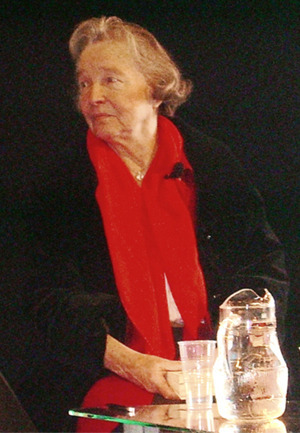
Eeva Kilpi’s experimental erotic novel Tamara is far more than a fine piece of erotic writing. It is a refreshingly unfashionable approach to love in its fullest sense; it is about the concern of one human being for another, and about respect for others, however emotionally or physically deprived they may be. Tamara is the first Finnish love novel in which the pysical aspect of love is described alongside with the spiritual and moral aspects. The narrator is a paralyzed man who is capable of unconditional love. The subject of his love and his life partner is a sexually active woman, who offers him an erotic fantasy and brings him pleasure and satisfaction by telling him about her experiences in detail. Despite their unusual relationship, these lovers bear moral responsibility for one another. The reader is gradually led to discover that the novel is not the mere description of the existence of a distraught woman in search of physical love, but the expression of a fierce desire for the emancipation of the female psyche. “At last, a love novel,” wrote the Danish author Carsten Jensen of this book. With this first Finnish erotic novel Eeva Kilpi attacks (and not without humour), puritanism, hypocrisy and prejudice, everything that that makes life painful and makes us feel guilty and claims for women the right to emotions and to sexuality. Tamara was a sensation when it was published in 1972. Tamara has proved to be a sustainable work of art. It is considered a modern classic in Finland.
Author

Written by: Katarina Blomqvist, Liisa Enwald Eeva Kilpi comes from eastern Karelia, east of Finland's present-day border with Russia, studied English philology at the University of Helsinki, and worked as a teacher before she began to earn a living from her writing. From 1970 to 1975, she chaired the PEN club in Finland. She made her debut with the short story collection Noidanlukko in 1959. She wrote about the evacuation of the population of Karelia in Elämä edestakasin, 1964, and Elämän evakkona, 1983, as well as in her autobiographical novel trilogy Talvisodan aika (1989; Eng. tr. The Time of the Winter War), Välirauha ikävöinnin aika, 1990, which describes the interwar period, and Jatkosodan aika, 1993. Her experimental, erotic novel Tamara (1972; Eng. tr. Tamara) which brought her international success, depicts the relationship between a sexually active woman and a handicapped man. In many of her works, the central character is a strong, independent woman, for example in her novels Häätanhu, 1973, Nainen kuvastimessa, 1962, and in Kesä ja keski-ikäinen nainen, 1970. Besides fiction, she has also written autobiographical literature: Ihmisen ääni, 1976, and Naisen päiväkirja, 1978. In Ihmisen ääni she challenges the myth of the mother. With her works Laulu rakkaudesta ja muita runoja, 1972, and Terveisin, 1976, Eeva Kilpi has made her mark as an ironic and humorous poet of the everyday. These collections were published in 1980 in Swedish under the title Sånger om kärlek, while a selection of the poems was published in Danish under the title En sang om kærlighed in 1981. In her later poetry collections Ennen kuolemaa, 1982, and Animalia, 1987, Eeva Kilpi questions man's right to dominate nature. Her poetry collection Kiitos eilisestä, 1996, is about sorrow and ageing, but also about love and passion. Additions by the editorial team 2011: The above biography was first published in 1998. Since then, Eeva Kilpi has written the novel Unta vain, 2007, and Rajattomuuden aika, 2001.